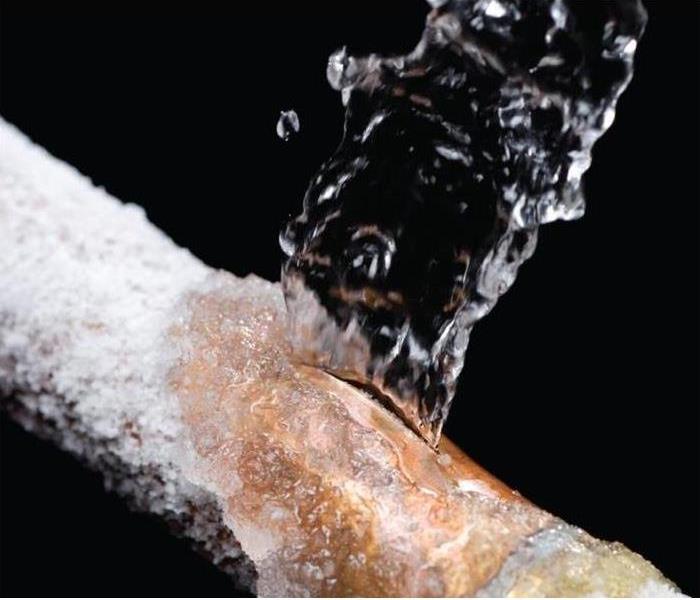When a pipe bursts in your home.
1/5/2018 (Permalink)
2018 has brought us mostly subfreezing temperatures. When it gets this cold outside homes are at risk of burst pipes and all of the headaches and water damage they bring. Water pipes burst when the water inside them freezes and expands causing an increase in pressure inside the pipe. When the pressure gets too high for the pipe to contain it bursts causing damage to your home.
A burst pipe can happen almost anywhere, but usually occurs with pipes that are close to the exterior of your home. The most critical aspect of dealing with a burst pipe is turning off the water supply and stopping the flow of water. Water in a crawlspace or basement is usually well contained and can be easily dried out. However, when a pipe bursts in the main part of your home, such as a toilet feed or an under-sink supply line, it can create a much bigger mess depending upon how much water has inundated the house.
As with any water damage, time is of the essence as mold can start to develop in as little as 24 hours after flooding occurs. The more time that passes without treatment the more likely those materials will continue to deteriorate and may not be salvageable. This is doubly true in homes with carpeting.
When a pipe in your home bursts—affecting multiple rooms—travels from an upper level to a lower level of the home, or has been left unnoticed for more than 8 hours, professional water mitigation and specialized drying equipment is essential for preventing long-term damage. If you see that water has seeped into the subflooring or the drywall the safest step would be to contact a professional water damage remediation company like SERVPRO of Central Manhattan to help remove or restore items that would otherwise be destroyed by mold.





 24/7 Emergency Service
24/7 Emergency Service
